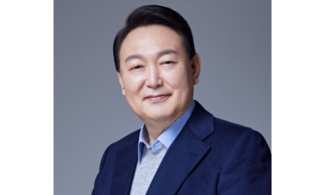
According to the Corruption Investigation Office for High-ranking Officials (CIO), officials determined that executing the arrest warrant was "virtually impossible" due to the ongoing standoff.
South Korean presidential guards and military troops successfully blocked the arrest of impeached President Yoon Suk Yeol on Friday, following a tense six-hour standoff at his residence in the heart of Seoul.
Yoon, who faces criminal investigation for insurrection over his controversial martial law proposal on December 3, is the subject of the first arrest warrant ever issued for a sitting president in the country’s history.
According to the Corruption Investigation Office for High-ranking Officials (CIO), officials determined that executing the arrest warrant was "virtually impossible" due to the ongoing standoff.
Hundreds of Yoon’s supporters gathered outside his compound early in the morning, vowing to protect him "with our lives."
Many chanted, "President Yoon Suk Yeol will be protected by the people," while also demanding the arrest of the CIO head.
Reuters reports that officials from South Korea’s Criminal Investigation Office (CIO) arrived at the presidential compound early in the morning to pursue possible insurrection charges against former President Yoon, following his brief declaration of martial law.
The investigators arrived shortly after 7 a.m. (2200 GMT Thursday) and entered the compound on foot.
However, once inside, they were met by a strong presence of Presidential Security Service (PSS) agents and military personnel assigned to safeguard the president, a CIO official reported.
Over 200 security personnel formed human barriers, preventing the investigators and police from proceeding.
Although there were some tense exchanges and the PSS agents appeared to be armed, no weapons were drawn during the standoff.
Yoon, who has been isolated since his impeachment and suspension from power on December 14, was not seen during the confrontation.
The Ministry of National Defense confirmed that the troops were under the control of the PSS.
By around 1:30 p.m., the CIO called off the operation due to concerns for the safety of their team, expressing disappointment over Yoon’s refusal to comply.
Meanwhile, they also indicated that they would evaluate their next course of action.
The police, who are part of the joint investigation team, issued summonses for the PSS chief and his deputy, accusing them of obstructing official duties.
The two officials are expected to appear for questioning on Saturday.
Insurrection charges are one of the few crimes from which a South Korean president is not immune.
A court had approved an arrest warrant for Yoon on Tuesday after he ignored multiple summons to testify. The warrant remains valid until January 6.
Yoon's legal team argued that the CIO lacked authority to investigate insurrection and condemned the attempt to enforce an arrest warrant in a highly sensitive area.
They also warned the police against supporting the effort.
The interim head of Yoon's People Power Party praised the suspension of the operation, asserting that the investigation should proceed without detaining the former president.
The current warrant allows investigators only 48 hours to detain Yoon upon his arrest. After that, they must decide whether to request a detention warrant or release him.
Yoon’s short-lived martial law decree earlier shocked the country, as he announced it late at night to resolve political deadlock and target "anti-state forces."
However, within hours, 190 lawmakers voted against the order, and Yoon rescinded it about six hours later.
He later defended his decision, accusing political opponents of supporting North Korea and alleging election tampering without evidence.
In the aftermath, two senior military officials, including army chief Park An-su, were indicted after being detained in connection with the insurrection investigation.
Kim Yong-hyun, Yoon’s former defense minister, was also detained and indicted last week on charges of insurrection and abuse of power.
In addition to the criminal investigation, Yoon’s impeachment case is currently under review by the Constitutional Court, which is set to decide whether to reinstate or permanently remove him.
However, the court held a second hearing on Friday, with the first oral arguments scheduled for January 14.